When it comes to summer camp, kids are literally in for a treat. (Just think about those gooey s’mores!). Whether overnight or day camp, the experience offers kids a chance to make friends, learn new skills, become more independent, enjoy the outdoors and have fun!
We are thankful for the many groups in our region who offer camps for kids with special needs – from diabetes to cancer. Fresh Air Camp is one of them. It’s a free, 6-day, overnight summer camp for children who are ventilator and/or tracheostomy dependent, held each June on the grounds of Camp Cheerful in Strongsville.
Dr. Starla Glick Martinez, who’s the director of pediatric pulmonology in our Robert T. Stone Respiratory Center, says there are so many things that make camp such a great experience.
“For the patients, it’s a time that they get to be just like everyone around them,” she said. “In their day-to-day lives, they tend to be the only person with a trach or a vent. And, it’s the only way they get to experience things that many of us take for granted, such as going to a dance or having a sing-along at a campfire with s’mores. For their families, it’s an opportunity to see their kids having a blast with other differently-abled kids and being the focus of celebration by the hundreds of volunteers it takes to make Fresh Air Camp happen.”
Dereon North and Emmie Wanzer are 2 of Akron Children’s patients who attended Fresh Air Camp this week. At the age of 2, both healthy girls were affected with transverse myelitis. Their parents report that their daughters woke up from a nap and couldn’t move. Now, several years later, it still has taken away their ability to walk and move from the neck down.
Please enjoy these precious moments of Emmie and Dereon having a blast throughout the week. Photo credit goes to Fresh Air Camp (see more on social media).
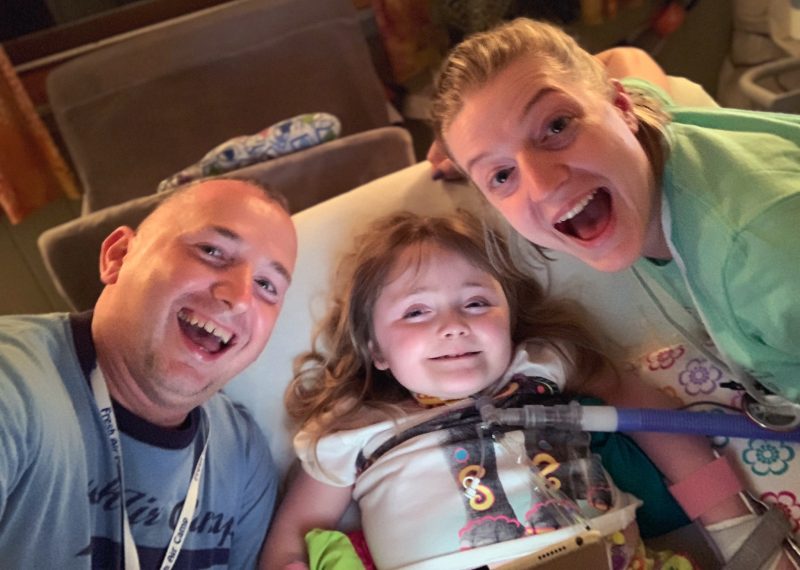
Emmie Wanzer has her very first sleepover at camp! Last year, she came to camp only during the daytime.
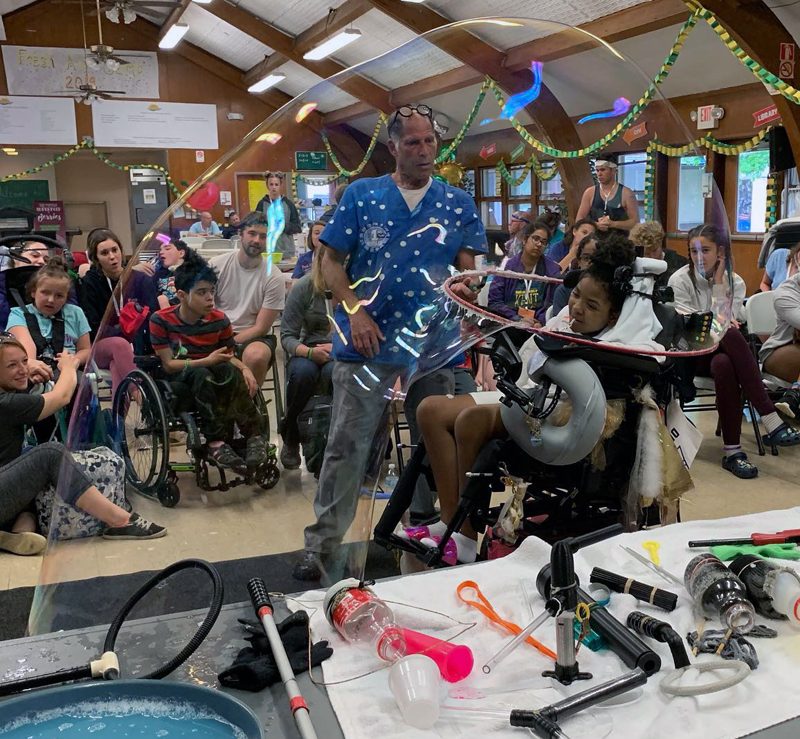
Dereon North fits perfectly in this huge bubble. She has attended camp several years and is a camp pro!
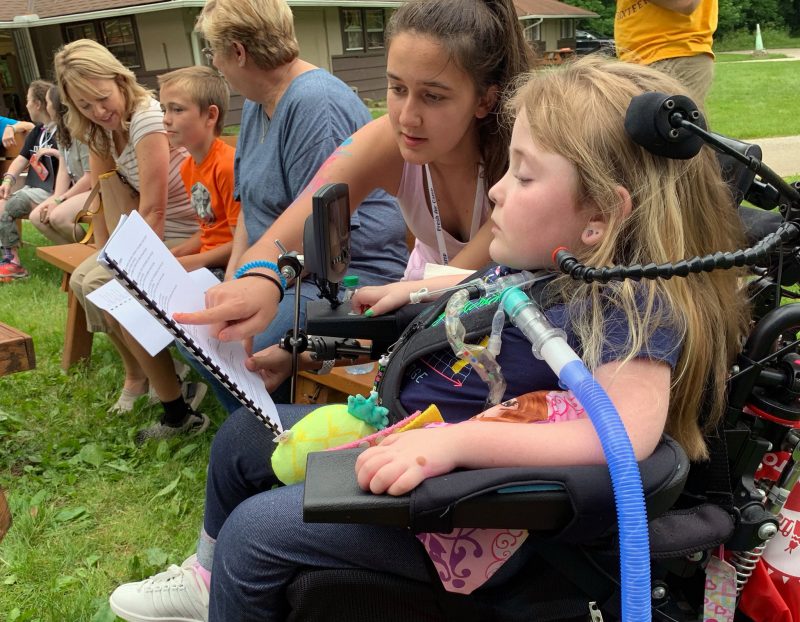
Emmie sings campfire songs.
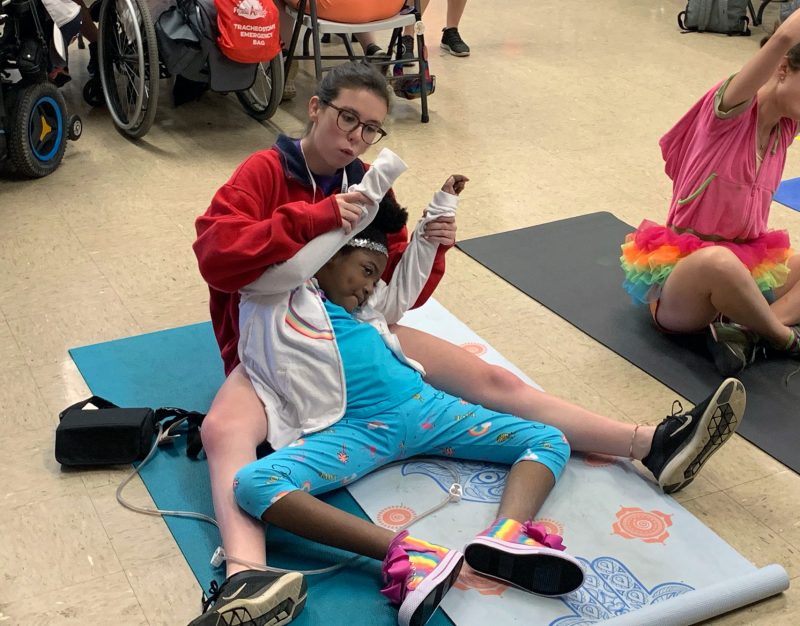
Dereon stretches out during morning yoga.
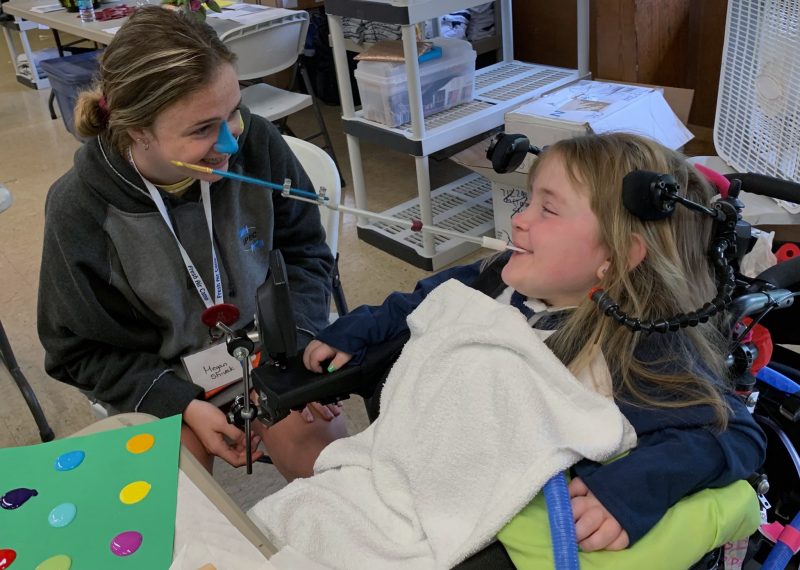
Rain won’t dampen the campers’ fun. Emmie takes her time painting using her mouth to hold the paintbrush.
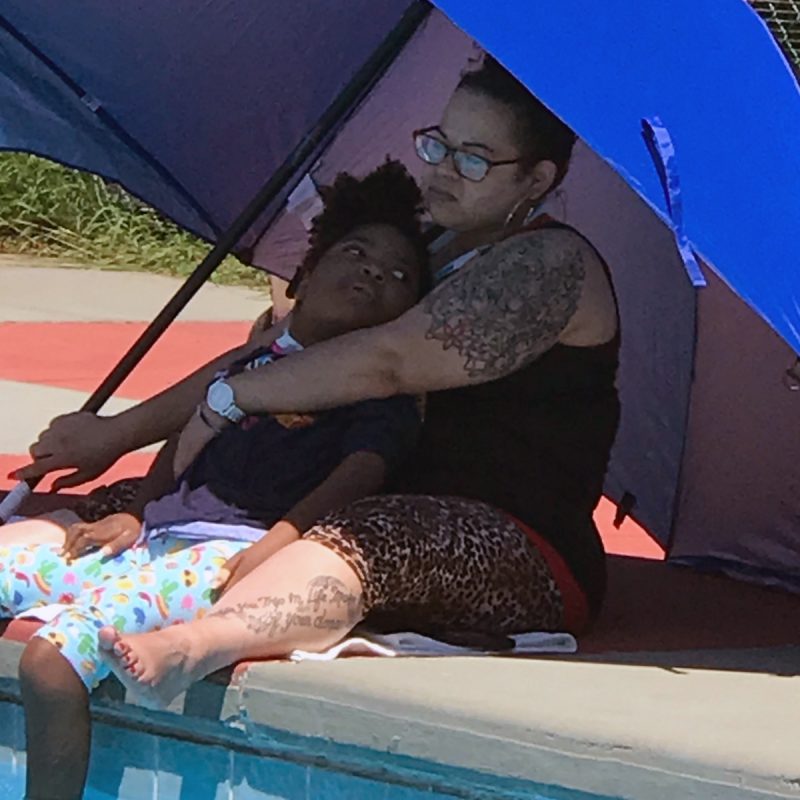
Dereon’s mom Diedra came to camp for a few cuddles poolside as Dereon soaked her feet.
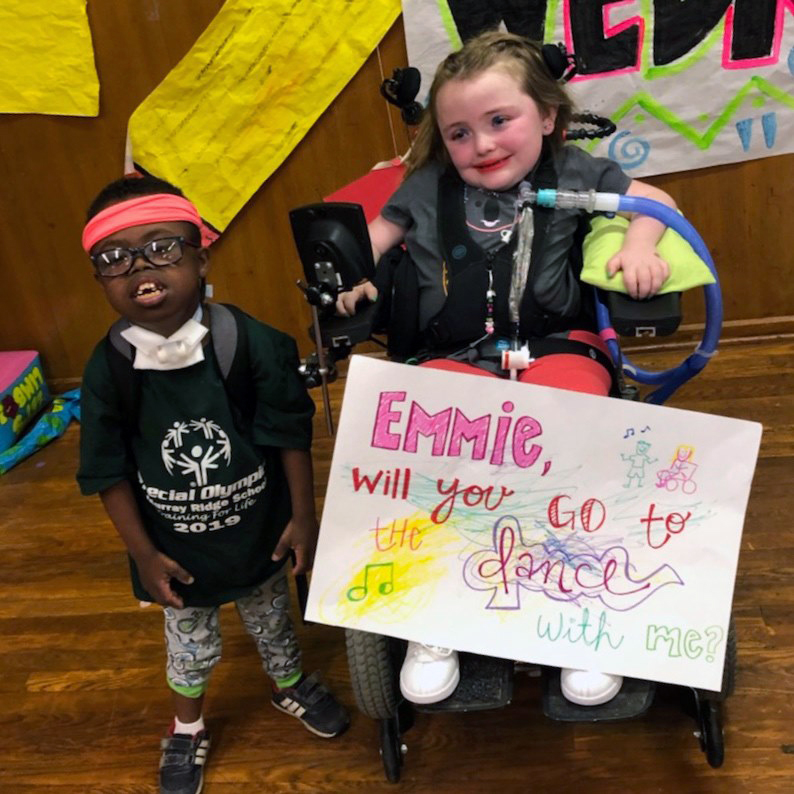
Emmie was asked to the dance by a friend. She said, Yes!”
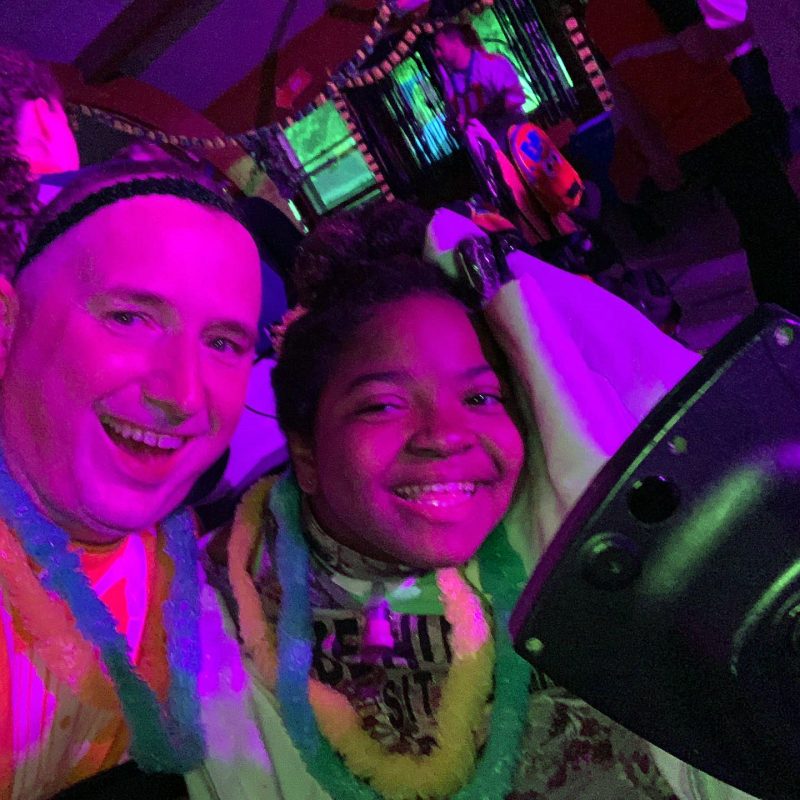
Dereon’s hair looked beautiful for the dance party.
After another successful camp week, Dr. Martinez reflected on what it all means for the healthcare professionals who take care of them in the clinic and hospital.
“Fresh Air is our chance to see the kids when they’re well and happy. We learn to know them, and their medical needs, in such a more complete way compared to just seeing them in the healthcare setting. FAC is one of the things that keeps me going at work, knowing that I’m part of making it possible for them to do ‘normal kid stuff’ in a safe setting, surrounded by people who really understand them.”










